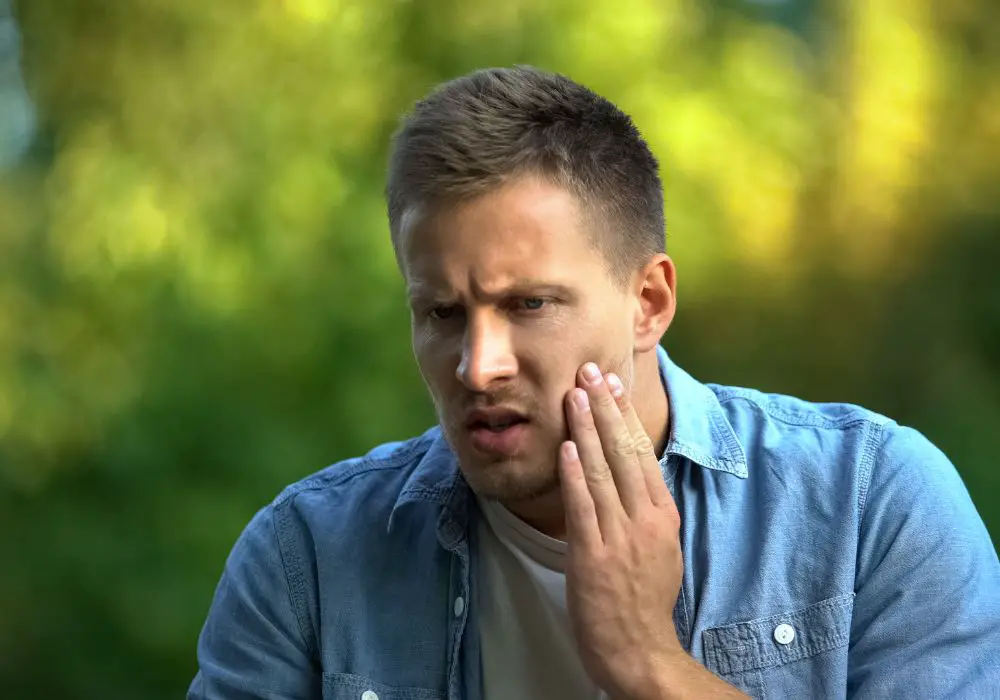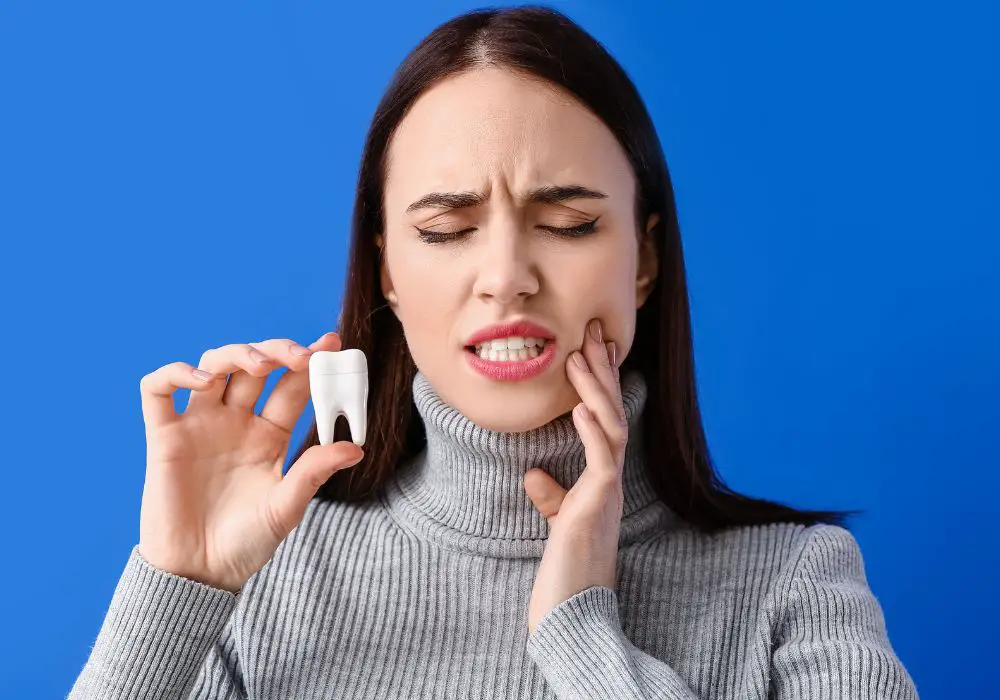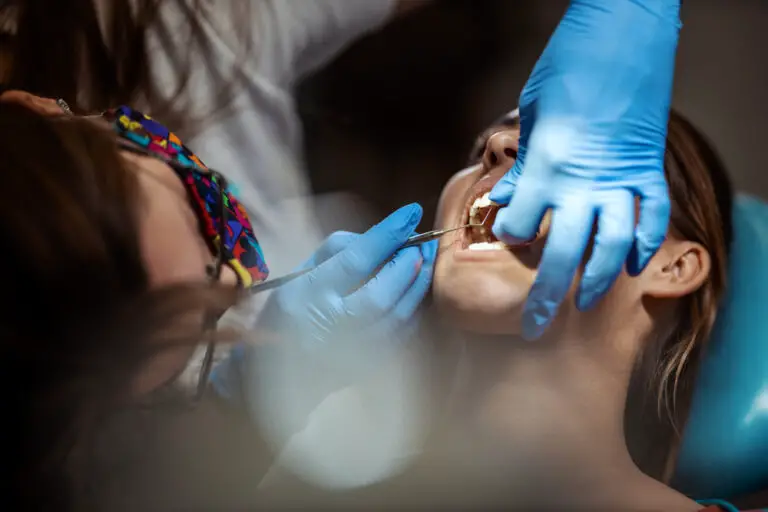Have you ever bitten into an ice cream cone or sipped a hot coffee and felt a sudden, uncomfortable zing in your teeth? Or maybe you’ve noticed a constant, low ache or pressure in a tooth that comes and goes? These types of strange, abnormal tooth sensations can be annoying and a bit alarming when they seemingly arise out of nowhere.
While it may be tempting to ignore fleeting tooth discomfort, ongoing or severe odd feelings warrant a trip to the dentist for evaluation. Lingering dental pain can be a sign of cavities, compromised fillings, receding gums, or nerve issues needing treatment. Catching problems early allows for more conservative care.
Weird tooth sensations should never be dismissed or taken lightly. According to the ADA, around 91% of U.S. adults over age 20 have some degree of tooth decay, while 1 in 4 have untreated cavities. Poor oral health contributes to gum disease, infections, tooth loss, and systemic inflammation. Plus, toothaches disrupt sleep, diet, focus, and quality of life.
Fortunately, most causes of strange dental discomfort are readily diagnosable and treatable. Arm yourself with information on the possible reasons for odd tooth feelings. This will help you determine when to see your dentist promptly versus using at-home remedies. With the right care, you can minimize tooth troubles and get relief from annoying sensations.
What causes odd or weird feelings in teeth?

Teeth sensations that feel strange, odd, or weird can stem from a variety of underlying causes. Here is more detail on some of the most common reasons:
Tooth sensitivity
Tooth sensitivity is one of the top reasons for uncomfortable tooth feelings. It occurs when the hard enamel outer layer of your teeth gets thinner, or your gums recede to expose more of the sensitive dentin layer underneath. This leaves the microscopic hollow tubes inside the dentin more exposed. These tubes transmit pain signals when triggered by hot, cold, sweet, acidic foods and drinks. Even breathing cold air can set off the sensitivity.
Recession and thinning enamel is often due to overzealous brushing, gum disease, cracked/chipped teeth, grinding, and acidic foods. Whitening treatments and dental work like fillings, crowns, and braces can also cause temporary sensitivity by irritating the inner tooth tissue. Proper oral hygiene with a soft brush, fluoride toothpaste, and desensitizing toothpaste can help strengthen enamel and calm symptoms.
Dental work
It’s very common to have strange, uncomfortable sensations from new dental work like fillings, crowns, bridges, implants, or braces. As your mouth adjusts to the new shape, texture, and fit of the restoration or appliance, you may feel pressure, odd biting sensations, or general discomfort. Within 2-4 weeks, your teeth and nerves typically adapt to the new situation.
However, if the dental work was not properly contoured and adjusted, it can continue rubbing and irritating your tongue, cheeks, gums, and existing teeth. See your dentist promptly if the weird feeling persists beyond the initial adjustment period, so they can fix the fit and occlusion. Ill-fitting dental work can damage your teeth over time.
Bruxism
Teeth grinding or clenching (bruxism) exerts extremely strong forces on teeth, often while you sleep. This repetitive pressure strains the ligaments, nerves, enamel, and pulp tissue within teeth. It can lead to face, jaw, and tooth pain that feels strange or uncomfortable. Grinding and clenching are linked to stress, anxiety, sleep disorders, and crooked bite alignment.
Wearing a custom nightguard helps protect your teeth from the grinding motion during sleep. Stress management, physical therapy, and bite correction can also help reduce bruxism habits and associated dental discomfort.
Problems with the tooth nerve
The nerve inside your tooth consists of tiny tubules traveling up through the roots into the pulp chamber. If this nerve tissue becomes irritated, inflamed, or dies off from infection, it causes odd, often severe tooth sensations. An untreated cavity, cracked tooth, dental injury, or failing root canal can all affect the tooth nerve. Symptoms involve continuous throbbing, radiating pain, zinging, tingling, or burning feelings. They may linger after hot and cold stimuli.
It’s important to see a dentist immediately if you have these nerve-related symptoms, as you likely need a root canal or tooth extraction to resolve the issue before it spreads. Leaving tooth nerve problems untreated can lead to tooth loss, abscesses, cysts, and jawbone infections.
Referred pain from elsewhere
Sometimes pain that seems to radiate from a tooth is actually originating elsewhere in the head and neck region. This phenomenon is called referred pain. It happens because the nerves that supply different areas of your head and jaw overlap and intersect near the trigeminal nerve center.
For example, an issue with your ears, sinuses, temporomandibular joint, or jaw muscles could get misinterpreted by your brain as tooth pain. Treating the true underlying source of the discomfort is key to stopping the referred dental pain. Your dentist can help differentiate this from true tooth-sourced sensations.
Sinus problems
When your maxillary sinuses behind your cheekbones become congested and inflamed from allergies, infection, or structural issues, it can put pressure on the upper teeth. This is because the roots of your upper back molars extend up near the floor of the sinuses. Sinus swelling, pressure, and infection can radiate pain and discomfort into those upper teeth. Treating the sinus trouble with antibiotics, decongestants, antihistamines, or surgery can help alleviate associated tooth pain.
When should I have weird tooth feelings evaluated?

In many cases, strange tooth sensations resolve on their own or aren’t concerning. But some situations do warrant having your dentist take a look:
- Sensitivity to hot, cold, or pressure that lingers longer than 3-4 weeks post-dental work
- Tooth pain that disrupts sleep and daily activities
- Tooth discomfort combined with inexplicable gum swelling or oral sores
- Throbbing, shooting, radiating, or electric shock sensations in a tooth
- Tingling, numbness, or burning feelings that don’t resolve within a few days
- Weird sensations persisting after the initial period of adjusting to new dental work
- Discomfort that seems linked to sinus congestion and headache
Don’t delay on getting evaluation and care if your symptoms are severe or persist beyond a few days. Dentists have the clinical training and technology to properly diagnose the cause of discomfort. Finding and fixing the problem early is crucial to prevent worsening damage.
How do dentists diagnose the cause of odd tooth feelings?
Dentists use a combination of the following methods to pinpoint the reason for unusual tooth sensations:
- Visual inspection – They look closely for signs of decay, cracks, wear, gum recession, swelling, and irritation around restorations. Magnification, illumination, and probing tools help identify issues.
- X-rays – Dental radiographs can reveal cavities, gaps around fillings, abscesses, cysts, bone loss, impacted teeth, and other hidden problems that may cause discomfort. 3D cone beam CT scans provide detailed views.
- Sensitivity testing – Your dentist will map your tooth sensitivity by exposing areas to hot, cold, air, and probing. This helps identify which teeth react and how intensely.
- Bite evaluation – Analyzing your bite pattern, occlusion, and jaw motion can detect imbalance, improper dental work fit, and grind-related trauma.
- Medical history review – Your dentist will ask about your symptoms, health conditions, medications, habits, treatments, and any mouth changes. This context helps inform the diagnosis.
- Specialty referral – For complex cases, you may be referred to an endodontist, periodontist, orthodontist, or orofacial pain specialist for additional diagnostic testing.
How are weird tooth feelings treated?

The recommended treatment options depend on the diagnosed cause of your odd tooth sensations. Common approaches include:
- Dental restoration – Fillings, inlays, onlays, crowns, or bonding can repair cracks, decay, and defects causing discomfort. A proper fit and bite adjustment are critical.
- Root canal – Removing inflamed or infected nerve tissue brings relief. A filling or crown seals off the tooth afterward.
- Tooth extraction – Pulling a badly damaged, infected, or problematic tooth that can’t be saved with other treatments.
- Nightguard – Wearing a plastic guard during sleep protects teeth from grinding damage. Can also deliver pain relief.
- Desensitizing toothpaste – Formulas containing compounds to numb nerve signals from sensitive teeth. Reduce use of whitening toothpastes.
- Fluoride treatments – In-office fluoride varnish or prescription paste strengthens enamel to reduce sensitivity.
- Medications – Prescription anti-inflammatories, antibiotics, steroids, or pain relievers to reduce infection, swelling, and discomfort.
- Physical therapy – Jaw stretches, exercises, massage, and hot/cold therapy helps TMJ and muscle issues causing referred pain.
Be sure to follow all of your dentist’s at-home care instructions for optimum healing and relief. Call them promptly if discomfort persists or returns. Consistent dental checkups and cleanings help prevent many problems.
Frequently Asked Questions
Q: Why do my teeth hurt when I drink something cold?
A: Cold sensitivity is most often caused by exposed dentin tubules, due to receding gums or worn tooth enamel that protects the dentin layer. When the inner dentin tubules are exposed, they transmit pain signals when stimulated by cold. Using desensitizing toothpaste and avoiding very cold foods can help manage the symptoms.
Q: What does it mean if I have a tingling feeling in my teeth?
A: Tingling tooth sensations often indicate irritation in the nerve tissue inside the tooth, known as the pulp. Possible causes include dental trauma, severe untreated cavities, cracked teeth, bruxism, or procedures irritating the nerve. It’s important to see a dentist promptly, as you may need a root canal or extraction to address the ailing nerve before it dies entirely.
Q: Why do my teeth hurt after I get fillings?
A: It’s very common for teeth to remain sensitive to hot, cold, and pressure for a few weeks after a filling procedure. This post-procedure sensitivity is caused by inflammation in the inner tooth tissue from irritation during the filling. It should gradually fade as the tissue heals. Avoid temperature extremes during recovery. Call your dentist if sensitivity persists beyond 3-4 weeks.
Q: What’s the best treatment for electric shock sensations in my teeth?
A: Zinging, electric shock-like pain typically means the tooth nerve is inflamed or dying from infection or trauma. Root canal treatment is often the best solution, as it removes the ailing nerve tissue. If the tooth is too severely damaged, extraction may be required. Leaving electric shock nerve pain untreated risks dental abscesses and further infection.
Q: Why do my teeth hurt when I’m congested or have a sinus headache?
A: Maxillary sinus congestion and infection can radiate pain to upper back teeth, due to the close proximity of the roots to the sinus floor. The swelling and inflammation puts pressure on those upper molars. Treating the sinus trouble with decongestants, nasal irrigation, antihistamines, or antibiotics can help alleviate referred tooth discomfort.






